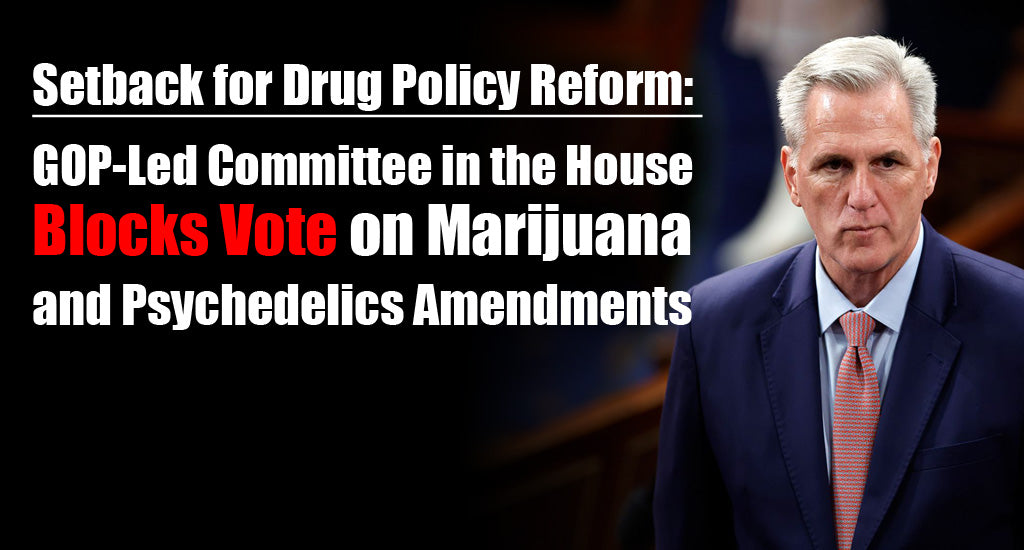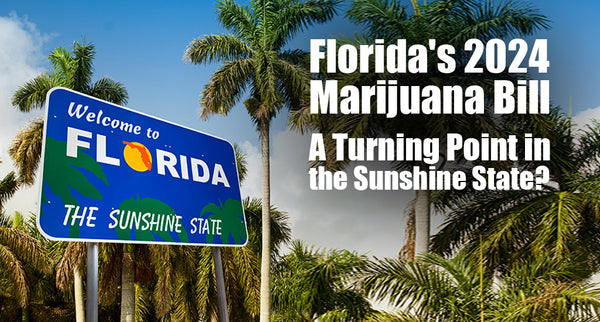
Setback for Drug Policy Reform: GOP-Led Committee in the House Blocks Vote on Marijuana and Psychedelics Amendments
No Marijuana and Psychedelics Amendments Approved in House Committee for Defense Bill
Lawmakers proposed several amendments related to marijuana and psychedelics as part of a major defense bill. However, a House committee, which is controlled by Republicans, blocked all of these amendments from advancing to a floor vote. Despite the efforts of certain sponsors who urged the committee to accept the amendments, Republican leadership declined to include them in the bill.
The committee released a second rule and a list of approved amendments for the defense bill, but none of the drug policy amendments made the cut. Previously, the committee had advanced a package of non-controversial proposals, but the hopes of advocates to include some reform measures were dashed.
The proposed amendments covered various issues, such as ending cannabis drug testing for military enlistment, protecting federal workers from losing security clearances due to marijuana use, allowing Department of Veterans Affairs doctors to recommend medical cannabis, permitting servicemembers to use CBD or hemp-derived products, and investigating the therapeutic potential of certain psychedelics.
Although these amendments were not included, two marijuana and psychedelics measures were already attached to the base text of the defense bill by the House Armed Services Committee.
One of the advancing measures focuses on psychedelics and requires the defense secretary to conduct a clinical study on the therapeutic benefits of psychedelics for active duty service members suffering from conditions like PTSD or traumatic brain injury. The study would involve substances such as psilocybin, MDMA, ibogaine, or DMT, and a report on the findings would be provided to lawmakers within a year of the legislation's enactment. Some proposed revisions to the bill sought to amend this language but were rejected.
Representative Dan Crenshaw, who is sponsoring similar standalone legislation, expressed his desire for an amendment to be adopted in the Rules Committee to address concerns about funding and the requirement for clinical studies. However, the panel did not follow suit, making the psychedelics amendment less effective.
Another cannabis amendment attached to the bill called for a defense department medical cannabis pilot program to examine the health effects of marijuana use by veterans and service members who are beneficiaries of the Department of Veterans Affairs. Participants would need to have diagnoses such as PTSD, depression, anxiety, or a prescription for pain management to be eligible for the program.
The committee blocked all the marijuana and psychedelics amendments proposed, including measures to prevent security clearance denials based on marijuana use, prohibit drug testing for marijuana in military enlistment, protect servicemembers' use of CBD or hemp-derived products, allow VA doctors to recommend medical cannabis, develop a plan to provide reenlistment waivers for service members testing positive for THC, expedite the waiver process for recruits with prior cannabis use, transfer certain drugs from Schedule I to Schedule II of the Controlled Substances Act, create a grant program for research on psychedelics, and more.
Despite expectations of bipartisan support for these amendments, they were ultimately blocked. Last year, two psychedelics-related provisions were excluded from the final deal, but lawmakers secured language instructing the defense secretary to study alternative therapies for conditions like PTSD, TBI, or chronic pain.
Other cannabis-related items, such as cannabis banking reform, were also left out of the defense bill, disappointing advocates and stakeholders. However, the Senate Appropriations Committee recently released a report urging the VA to explore medical marijuana access for veterans and study the therapeutic potential of psychedelics in a separate spending bill.
The committee blocked several amendments related to marijuana and psychedelics. Here's a list of what they rejected:
-
Rep. Robert Garcia (D-CA): Stop denying security clearances to defense department workers just because they use marijuana in states where it's legal.
-
Rep. Matt Gaetz (R-FL): Prevent drug testing for marijuana as a requirement for joining the military.
-
Rep. Tony Gonzales (R-TX): Protect military servicemembers from being punished for using CBD or other hemp-derived products.
-
Reps. Brian Mast (R-FL), Barbara Lee (D-CA), Dave Joyce (R-OH), and Earl Blumenauer (D-OR): Allow VA doctors to recommend medical cannabis to veterans in states where it's legal for therapeutic purposes.
-
Reps. Dave Joyce (R-OH), Earl Blumenauer (D-OR), and Jason Crow (D-CO): Make the defense secretary develop a plan to give waivers to service members who test positive for THC so they can continue serving.
-
Reps. Mikie Sherrill (D-NJ), Earl Blumenauer (D-OR), Dina Titus (D-NV), Jared Moskowitz (D-FL), Salud Carbajal (D-CA), Rick Larsen (D-WA): Speed up the process for military recruits admitting prior cannabis use by allowing lower-level defense employees to grant waivers. There's a similar amendment filed by the same sponsors.
-
Reps. Madeleine Dean (D-PA), Nancy Mace (R-SC), Bill Johnson (R-OH), Jasmine Crockett (D-TX), and Blumenauer: Give the Drug Enforcement Administration (DEA) the power to reclassify drugs like psilocybin and MDMA from Schedule I to Schedule II of the Controlled Substances Act (CSA) if they have received "breakthrough therapy" designations from the FDA.
-
Reps. Dan Crenshaw (R-TX) and Morgan Luttrell (R-TX): Expand the existing psychedelics study provisions to fund research on their therapeutic potential for treating PTSD and traumatic brain injury (TBI) through a DOD grant program.
-
Rep. Susan Wild (D-PA): Require the defense department to include recommendations for further exploring the therapeutic use of psychedelics in its report on the ongoing clinical trials.
-
Rep. Rashida Tlaib (D-MI): Mandate that the defense department shares its findings from psychedelics trials with VA, the Department of Health and Human Services (HHS), and relevant congressional committees, not just the House Armed Services Committee as it currently states.
-
Rep. Ken Buck (R-CO): Express Congress' support for recognizing MDMA as a treatment for PTSD and require the head of VA to create a plan for such treatment if FDA approves it. Another amendment expresses the same sentiment but doesn't include the action for VA.
-
Rep. Lou Correa (D-CA): Encourage officials to explore all potential therapies, including medicinal cannabis and psychedelics, to help veterans heal their visible and invisible wounds when they return home.
-
Reps. Mikie Sherrill (D-NJ), Kelly Armstrong (R-ND), Stephanie Bice (R-OK), Nancy Mace (R-SC), Tom McClintock (R-CA), Steven Horsford (D-NV), Bobby Scott (D-VA), David Trone (D-MD), and Brian Fitzpatrick (R-PA): Remove the difference in sentencing between crack and powder cocaine.
-
Rep. Alexandria Ocasio-Cortez (D-NY): Prohibit the U.S. military's use of aerial fumigation in Colombia to destroy crops like the coca plant used for cocaine production.
Leave a comment
Comments will be approved before showing up.



